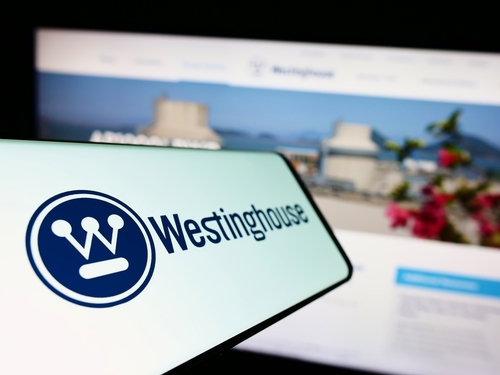
Cranberry Township, Pa.-based Westinghouse Electric Co. recently received federal approval to increase the burnup limit for its nuclear reactors.
The power company said the action by the Nuclear Regulatory Commission (NRC) will allow improved nuclear fuel efficiency, longer times between reactor refuels, and lower operating costs.
“We are very pleased to receive approval from the Nuclear Regulatory Commission for incremental burnup in our nuclear fuel,” said Westinghouse President of Nuclear Fuel Tarik Choho. “This milestone marks the start of production of nuclear fuel with increased capacity for Pressurized Water Reactors, vastly improving fuel costs for U.S. utility customers.”
The incremental burnup approval represents a key milestone for the company’s Encore Accident Tolerant Fuel Program, an initiative started in 2012 and funded by the U.S. Department of Energy that aims to improve performance and safety of nuclear reactors to better support U.S. energy security and climate goals.
Westinghouse, a leading supplier of nuclear fuel, provides a diversified portfolio across nuclear reactor types, including PWR, BWR, AGR, and VVER. With manufacturing facilities in the United States, the United Kingdom, and Sweden, the power company delivers innovative fuel technologies to meet customer needs for lower fuel cycle costs, increased operational flexibility and efficiency, diversity of supply, and accident-tolerant products, said Westinghouse.
The company is also creating a center of excellence for Low Enriched Uranium Plus (LEU+) fuel manufacturing in South Carolina to reduce the number of outages needed in nuclear plants.
Specifically, the NRC’s newly approved burnup limit increase is for the Westinghouse Encore fuel designs and will enable reductions in feed batch size, thereby improving fuel cycle economics.
This is the first time nuclear fuel batch reloads in the United States will be able to exceed a burnup limit of 62 GWd/MTU, according to the NRC, paving the way for a future extension that could benefit utilities to operate economically on 24-month fuel cycles.